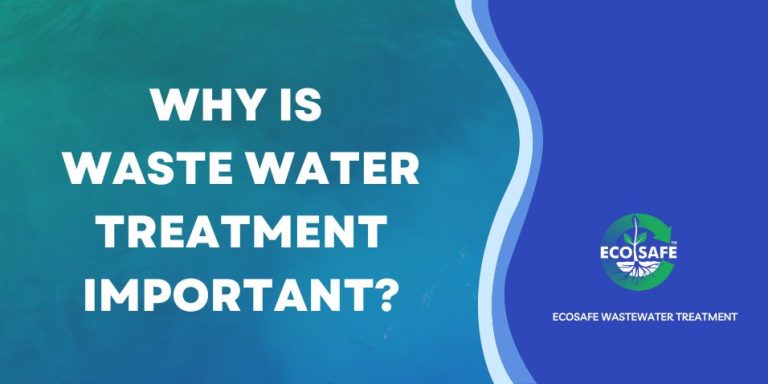Reclaim Waste - The Facts
Reclaim Waste - The Facts
Blog Article
Not known Incorrect Statements About Reclaim Waste
Table of ContentsReclaim Waste Can Be Fun For AnyoneThe 10-Second Trick For Reclaim WasteThe Basic Principles Of Reclaim Waste Reclaim Waste Things To Know Before You BuyThe Best Strategy To Use For Reclaim Waste
Explore the kinds, incidents, and forms of fluid waste. Domestic sewage waste describes the waste and items from a property sewage-disposal tank. This type of waste is created by humans in houses, institutions, and various other structures. This only includes septic systems that have a drainpipe area. The appropriate management and disposal of residential sewer waste need fluid waste to be moved to a sewage therapy plant where the proper approaches and equipment are put on cleanse and get rid of waste.
Commercial waste usually includes possible risks, such as combustible products or a mix of fluid and strong waste items, and requires a much more innovative and detailed disposal process. The disposal of industrial waste usually involves the purification of waste prior to transport to guarantee risk-free and correct disposal. Hazardous waste is created from byproducts and overflow of industrial procedures and manufacturing.
This sort of waste can not make use of the same sewage administration transport or procedures as septic or industrial liquids. The industrial waste administration process needs the examination and screening of fluid waste prior to it undertakes the disposal procedure (liquid waste removal melbourne). Runoff waste is the liquid waste that comes from overflow and excess stormwater in highly inhabited areas or cities
Drainage waste can create contamination and flooding otherwise handled correctly. Discover much more about sewer cleaning and waste monitoring. Ensuring proper waste management can prevent calamities and decrease ecological damage. Both individuals in residential setups and specialists in business or production markets can take advantage of understanding the procedures and regulations of fluid waste administration.
What Does Reclaim Waste Do?
Call PROS Services today to discover our waste administration and disposal services and the appropriate means to care for the fluid waste you generate.
(https://www.tumblr.com/reclaimwaste1/766851148823068673/at-reclaim-waste-were-a-national-solutions?source=share)This supposed 'wastewater' is not just a crucial resource however, after therapy, will be released to our land, rivers or the ocean. Made use of water from bathrooms, showers, bathrooms, kitchen area sinks, washings and industrial processes is recognized as wastewater.

water made use of to cool down machinery or clean plant and tools). Stormwater, a type of wastewater, is drainage that streams from farming and urban locations such as roofs, parks, yards, roadways, paths and rain gutters right into stormwater drains, after rain. Stormwater moves untreated directly to local creeks or rivers, ultimately getting to the ocean.
The Ultimate Guide To Reclaim Waste
In Queensland, many wastewater is dealt with at sewer therapy plants. Wastewater is transported from domestic or industrial sites through a system of sewers and pump stations, understood as sewage reticulation, to a sewer treatment plant. Neighborhood governments develop, preserve and run most sewer treatment plants. Operators are accredited under the Environmental Protection Act 1994 to discharge cured wastewater at an acceptable ecological criterion into rivers.
The Department of Natural Resources suggests city governments regarding handling, operating and preserving sewerage systems and treatment plants. In unsewered locations, city governments may call for owners to set up specific or family sewer therapy systems to deal with residential wastewater from bathrooms, cooking areas, shower rooms and washings. The Division of Natural Resources authorizes making use of house systems when they are verified to be efficient.
The majority of stormwater receives no therapy. In some new neighborhoods, treatment of some stormwater to eliminate litter, sand and gravel has actually begun using gross toxin catches. Wastewater therapy occurs in four phases: Gets rid of strong matter. Larger solids, such as plastics and various other things wrongly released to drains, are removed when wastewater is travelled through displays.
Wastewater then moves right into big containers where solids work out and are gotten rid of as sludge. Grease and scum are skimmed from the surface area. Uses small living microorganisms knows as micro-organisms to damage down and get rid of staying liquified wastes and great bits. Micro-organisms and wastes are included in the sludge. Removes nitrogen and phosphorus nutrients that might create algal blooms in our waterways and intimidate aquatic life.
Reclaim Waste Things To Know Before You Buy
Nutrient elimination is not offered at all sewage therapy plants due to the fact that it calls for pricey specialized devices. Clear liquid effluent generated after therapy may still include disease-causing micro-organisms - industrial wastewater treatment.

The majority of wastewater streams into the sewage system. Under the Act, local governments carry out approvals and permits for ecologically relevant activities (Periods) including wastewater launches that may have a local effect.
Rumored Buzz on Reclaim Waste
Surveillance gives valid details concerning water quality and can confirm that licence conditions are being met. The information obtained through monitoring offers the basis for making water high quality decisions.
Report this page